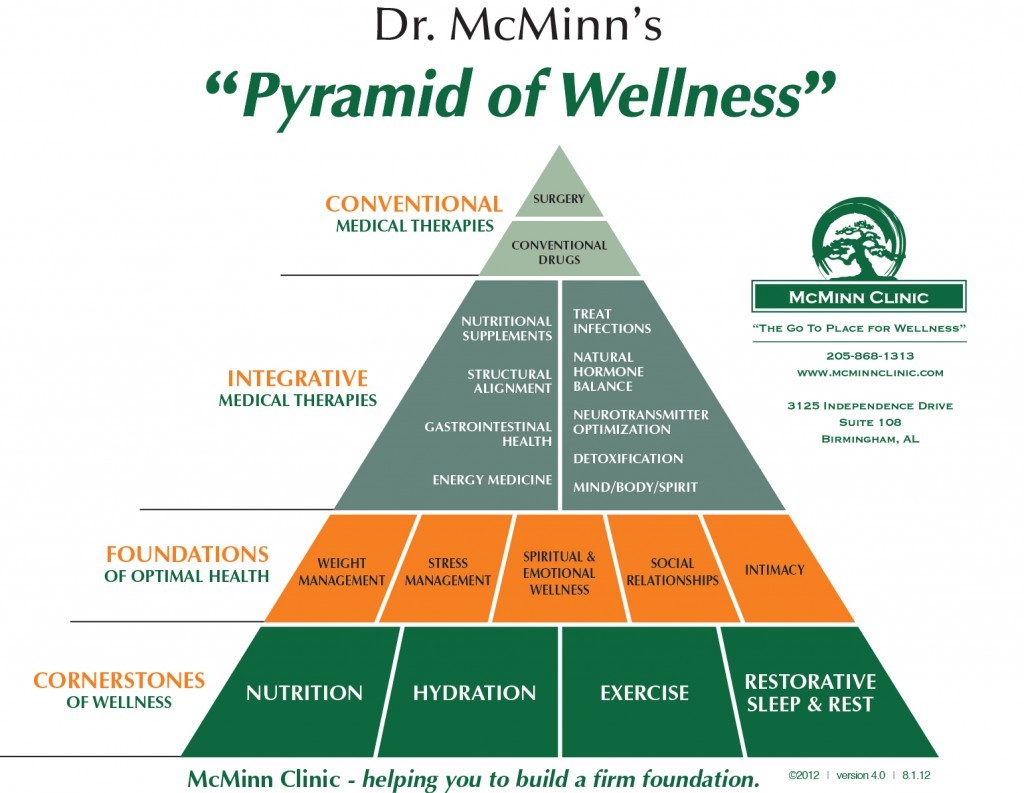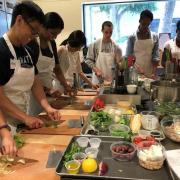Permanent On-Campus Teaching Kitchen to Open this Fall!
For the past few years, UCLA has hosted Teaching Kitchen classes at Sur La Table in Westwood. While these classes have been free for students, UCLA is required to pay to use their space, and there are extreme limitations on the number of students that can participate. In order to provide hands-on skills and food literacy to the wider student body, an on-campus teaching kitchen is scheduled to open on October 29th at the Los Angeles Tennis Center!
Food literacy is an incredibly nuanced term. See below for Kaitlin Reid’s (Nutrition Health Educator and Co-Founder, UCLA Teaching Kitchen) definition of food literacy. Try using it as a mental checklist for both the aspects of food literacy that you feel you understand well, and those that you’d like to learn more about.
“If someone were to improve their food literacy, they would essentially be improving their knowledge and skills, along with their attitudes and behaviors around food and nutrition. More specifically, someone with a higher degree of food literacy would:
- understand the components of a healthy diet
- understand how and where to buy food
- understand the nuances of food security, and other public health related food issues
- know how to budget for (healthy) eating
- know how to cook/prepare food, and maybe even how to grow it
- know how to use food to make more sustainable choices
- know how to have a healthy relationship with food (and your body)
- know how to use it to connect to other people/other cultures
- know how to use food/nutrition to prevent disease and improve health
Food literacy is about far more than basic nutrition.”
A Brief History of the “Teaching Kitchen”
While the importance of a healthy diet in achieving good overall health cannot be overstated, most medical education curricula lack sufficient training in nutrition. One study shows that only 25% of medical schools require students to take a nutrition course and fewer than 25% of physicians feel confident in discussing diet and exercise with their patients!

There is no surgery or prescription drug that can replace good nutrition. However, this message is not properly conveyed to medical students.
To remedy this, in 2006, the Culinary Institute of America and the Harvard T.H. Chan School of Public Health–Department of Nutrition launched the Healthy Kitchens, Healthy LivesⓇ conference, aiming to provide health professionals with both a greater understanding of nutrition science and the tools and recipes needed to make a lasting impact on their patients.
As the program grew, participating health professionals were motivated to create their own teaching kitchens, each of which operated separately from one another. The Teaching Kitchen Collaborative (TKC) was launched in 2016 in response to the need for a unified organization to oversee the many teaching kitchens. Now there are 41 teaching kitchens across the globe, eight of which are in California.
UCLA Teaching Kitchen at Sur La Table
UCLA has been part of the Teaching Kitchen Collaborative since 2016. Janet Leader (Associate Director of Nutrition Programs, Fielding School of Public Health) and Kaitlin Reid (Nutrition Health Educator, UCLA Student Health Education & Promotion) have been key pioneers in its inception and growth thus far.
When the UCLA Teaching Kitchen began hosting classes at Sur La Table in Westwood, the classes were geared solely towards health professional students. Since then, it has grown to reach the wider UCLA community, including classes for students recruited through Food Security Resources during Fall 2018.
The effects of these workshops on student wellness are promising: 96% reported an increased ability to eat balanced meals, 27% had connected with someone they met in class after one month, and 96% (an increase of 25% from the start) understood that half of your plate should be fruits and vegetables.

Graduate students participate in a Teaching Kitchen Class at Sur La Table in Westwood (2017).
Keep an Eye Out for the Launch of the On-Campus Teaching Kitchen on October 29th!
The future of the Teaching Kitchen is uncertain and exciting. The new kitchen at the tennis center has a maximum occupancy of only 12 students, but an auditorium/reception hall will be built to potentially serve larger groups. Some additional possibilities for ways to use the space are as a food prep area for those that don’t have access to a kitchen, training student interns in kitchen management, and hosting cultural food events.
Kaitlin Reid envisions an impactful future for the UCLA Teaching Kitchen:
“I believe [food] is the single most significant factor in the future of politics, environmentalism, economics, technology, health and healthcare, and ultimately of humanity. And if food is the future, now, more than ever before, education on food/nutrition is crucial.
What would it look like if every single student, staff, and faculty member were able (or perhaps even required!) to participate in experiential learning via the UCLA Teaching Kitchen? If UCLA is in fact, a birthplace of innovation and culture change, then why not dream really really big?”
For more information on the classes that have been hosted at Sur La Table, check out this blog post written by Kaitlin Reid in December 2017.
Finally, check out this resource for building the perfect meal in 5 simple steps! This beautiful infographic provides:
- Thousands of potential combinations of nutritious proteins, vegetables, smart carbs, and healthy fats, with in-depth cooking instructions for each.
- A guide to portioning ingredients.
- A guide to seasoning food with suggested spice profiles of 10 different worldly cuisines.
- Instructions on the order in which to season your food.
- Additional flavor tips.
Patience Olsen is an undergraduate student at UCLA majoring in Civil Engineering. In addition to blogging for the EatWell pod, she is a PD for the ASCE Environmental Design project and the Events Coordinator/Social Media Manager for AWWA.


